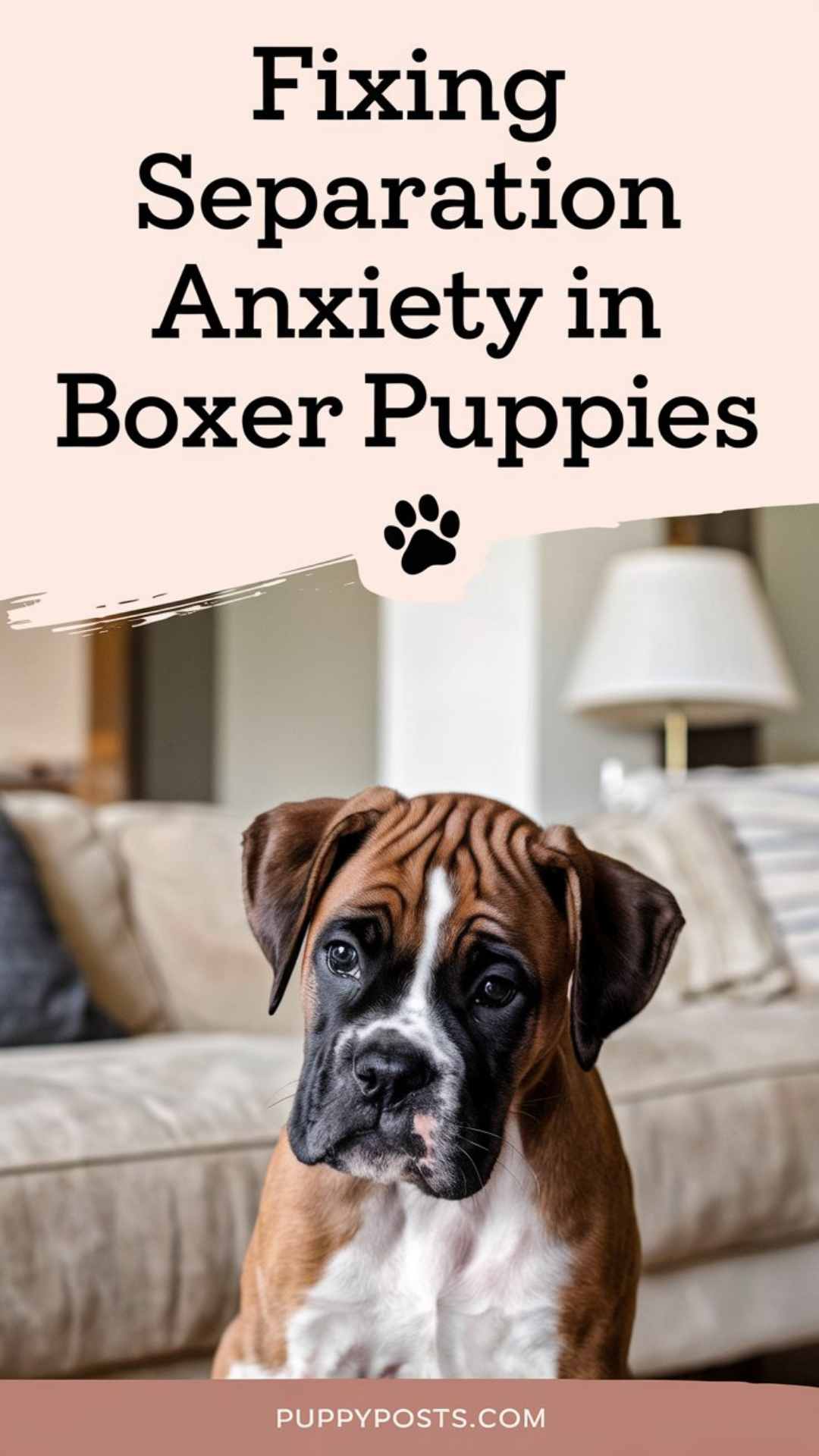Fixing separation anxiety in Boxer puppies
Alright, let me lay it out straight—separation anxiety in Boxer puppies is a problem you need to tackle head-on. I’ve spent over a decade as a veterinarian and running a sanctuary for stray dogs and cats. I’ve seen firsthand how unchecked separation anxiety can turn a lively Boxer puppy into a stressed, destructive mess.
Boxers are loyal, energetic, and smart—but that also means they form strong attachments. When left alone without proper guidance, their anxiety kicks in, causing barking, chewing, and pacing. It’s on you to help your pup feel secure and confident when you’re not around.

Why Boxer Puppies Get Separation Anxiety
Boxer puppies crave interaction. When they don’t get it, or when they’re suddenly left alone, they can feel abandoned and scared. This fear triggers the anxiety and the behaviors that come with it. Understanding this fear is your first step toward fixing the problem.
Step 1: Establish a Safe Space
Create a comfortable, secure spot for your Boxer puppy—whether it’s a crate or a quiet corner with their bed and toys. This spot becomes their safe haven where they can relax, even if you’re not nearby.
Step 2: Practice Gradual Departures
Don’t just walk out the door and leave your puppy flipping out. Start with short, calm absences—five minutes, then ten, then longer. Keep your arrivals and departures low-key. No dramatic goodbyes or excited hellos; that just amps up their anxiety.
Step 3: Exercise Before You Leave
A tired Boxer puppy is less likely to panic. Tire your pup out with physical activity and mental challenges before you head out. This helps reduce their nervous energy and makes calmness easier to achieve.
Step 4: Reward Calmness
When you return and your Boxer puppy is relaxed, reward that behavior with treats and praise. Positive reinforcement is key—show your pup that calmness gets them what they want.
Step 5: Don’t Punish Anxiety-Driven Behavior
If your Boxer barks, chews, or acts out because of anxiety, don’t punish them. Punishment just makes fear worse and breaks trust. Stay patient, consistent, and use positive methods to guide your puppy.
Step 6: Seek Expert Help if Necessary
Sometimes, anxiety is too deep-rooted for a quick fix. If your Boxer puppy’s separation anxiety is severe or destructive, get professional help from a trainer or veterinary behaviorist. Early intervention is critical.
Bottom Line
Fixing separation anxiety in Boxer puppies takes patience, consistency, and calm leadership. Step up, create a safe space, and help your pup build confidence when they’re alone. Your Boxer will thank you with a calmer, happier life.







